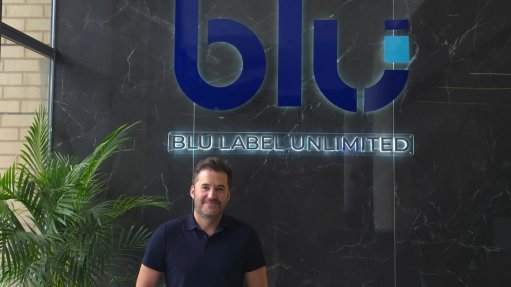Innovation is the mindset that keeps business alive
This article has been supplied.
By: Arnold van Graan - Head of Markets Research, Nedbank Corporate and Investment Banking
When we talk about innovation, it is tempting to focus on the latest technology trend or a fast-moving start-up that seems to have cracked the code. That’s part of the picture, but it is not the whole story. More often, innovation begins in the toughest of circumstances. It starts with survival. During Covid-19, companies did not have the luxury of debate – restaurants had to move to delivery almost overnight, retailers scrambled to shift stock online, and banks had to reinvent the way they engaged clients without ever meeting them in person. That was innovation under pressure, driven by necessity.
But innovation is not always reactive. There is another form, less visible but just as powerful, that comes from asking how we can do things better. How can we serve clients more effectively, eliminate inefficiencies, or build on what already works? This type of innovation rarely makes headlines, but it matters. And in both cases, whether responding to a crisis or refining the everyday, the critical factor is not the tool in hand but the mindset behind it.
It means building teams that experiment, accept setbacks, and learn from mistakes. I often call this failing forward. Thomas Edison described it best when he said he had not failed; he had just found thousands of ways not to make a light bulb. The lesson holds for business: each attempt, even when it falls short, gets you closer to progress.
This is where grit comes in. Innovation is rarely about a single big idea that works the first time. It is about perseverance in pushing through when things are not working, continuing to test when the market says no, and backing your team when they hit dead ends. Too often, leaders underestimate how much sheer persistence matters. Resilience is not the supporting act in innovation. It is the headline.
So what does this mean for leadership? There are 3 areas where businesses often go wrong: mindset, people, and courage. Some leaders stay stuck in their ways, others do not have the right people around them, and many are not brave enough to back ideas early. That is why every leader needs to adopt the habit of being proactive about change. It is no longer sufficient to react once disruption has arrived. The runway is too short, and hesitation costs more than calculated risk-taking.
We see this clearly in the country’s unserved markets. Entrepreneurs in township retail, informal financial services, and small-scale logistics are building models that fill fundamental gaps. They use technology practically and deliver services to people who were previously underserved. However, here is the important part: momentum comes when these innovators connect with larger partners who can take them further.
Take Karri, a fintech company managing school payments. On their own, they faced scepticism. Parents asked why they should trust an unfamiliar brand with something as sensitive as school fees. Once Karri had connected with Nedbank’s payment infrastructure, credibility followed. RapidDeploy tells a similar story: early partnership and support gave them the foothold they needed to grow.
The lesson is not simply that alliances matter, but that partnerships succeed when each side brings something essential. Nedbank contributes capital, systems, and regulatory support. Smaller players bring agility and fresh ideas. The combination is what creates scale.
And it is not only start-ups showing the way; I think of companies like Master Drilling, an established name in a traditional industry that continues to find new ways to improve equipment and processes. That is innovation too. Not headline-grabbing, but steady and effective. Even old-school businesses can create new value by refining what they already know.
This also speaks to the role of Nedbank Corporate and Investment Banking (CIB) more broadly. Traditional banks are not disappearing. Our job is to be an enabler: to put capital to work, provide the platforms and compliance that unlock trust, and act as the bridge between early potential and lasting growth. When we support a venture, we are not just investors – we are partners who can open doors that might otherwise stay shut.
The other reality we cannot ignore is that innovation is not always external. The next big thing might already be sitting inside your own business. Too often, leaders look outward for breakthroughs when the real opportunity lies in refining a process, extending a current product, or launching a new service off an existing platform. At Nedbank, we see how building new offerings on top of what we already have can create an outsized impact. You do not need to reinvent your organisation each time. Sometimes the smart move is to unlock potential that already exists.
Of course, innovation at home faces structural challenges. Skills are not the issue. We have world-class talent here. The friction points are capital and regulation. Too much capital remains tied up in established assets while high-potential ventures struggle to get backing. And when regulation becomes too rigid, it risks slowing down creativity and experimentation that our economy needs. That is why so many innovative companies still raise capital offshore even though the skills remain here at home. We should be asking ourselves: why do we allow intellectual property to migrate when we have the talent and the capital here?
This is where leaders, investors, and regulators all have a role to play. Businesses must cultivate the right mindset, bring in the right people, and have the courage to back ideas early. Investors need to direct capital not only to safe, established bets but also to new ventures that can grow industries. Regulators must enable rather than smother innovation. And institutions like Nedbank CIB will continue to act as connectors – partners who create the conditions for innovation to thrive.
The conclusion is simple but uncomfortable: If you do not innovate, you put your business at risk. But if you do, with the right mindset, people, courage, and partnerships, the upside is extraordinary. South Africa has the talent. We have the grit. We even have the capital waiting to be deployed. The challenge is whether we dare to bring all these pieces together.
Because innovation is not about technology alone; it is not even about start-ups alone. It is about survival and growth. It is about building stronger businesses and, through them, a stronger economy. The companies that embrace this reality will not only survive but lead.
Article Enquiry
Email Article
Save Article
Feedback
To advertise email advertising@creamermedia.co.za or click here
Press Office
Announcements
What's On
Subscribe to improve your user experience...
Option 1 (equivalent of R125 a month):
Receive a weekly copy of Creamer Media's Engineering News & Mining Weekly magazine
(print copy for those in South Africa and e-magazine for those outside of South Africa)
Receive daily email newsletters
Access to full search results
Access archive of magazine back copies
Access to Projects in Progress
Access to ONE Research Report of your choice in PDF format
Option 2 (equivalent of R375 a month):
All benefits from Option 1
PLUS
Access to Creamer Media's Research Channel Africa for ALL Research Reports, in PDF format, on various industrial and mining sectors
including Electricity; Water; Energy Transition; Hydrogen; Roads, Rail and Ports; Coal; Gold; Platinum; Battery Metals; etc.
Already a subscriber?
Forgotten your password?
Receive weekly copy of Creamer Media's Engineering News & Mining Weekly magazine (print copy for those in South Africa and e-magazine for those outside of South Africa)
➕
Recieve daily email newsletters
➕
Access to full search results
➕
Access archive of magazine back copies
➕
Access to Projects in Progress
➕
Access to ONE Research Report of your choice in PDF format
RESEARCH CHANNEL AFRICA
R4500 (equivalent of R375 a month)
SUBSCRIBEAll benefits from Option 1
➕
Access to Creamer Media's Research Channel Africa for ALL Research Reports on various industrial and mining sectors, in PDF format, including on:
Electricity
➕
Water
➕
Energy Transition
➕
Hydrogen
➕
Roads, Rail and Ports
➕
Coal
➕
Gold
➕
Platinum
➕
Battery Metals
➕
etc.
Receive all benefits from Option 1 or Option 2 delivered to numerous people at your company
➕
Multiple User names and Passwords for simultaneous log-ins
➕
Intranet integration access to all in your organisation





















